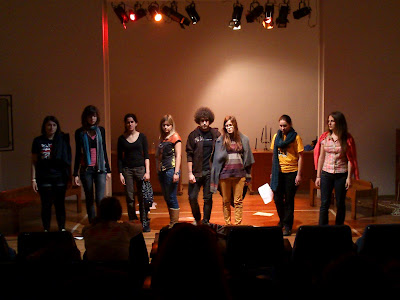 Once upon a time, there were two
countries,
Once upon a time, there were two
countries, 1775.
 “Kristine
dear, you’ve been told about the tea time. It must be served at five o’clock
sharp. And you’re already three minutes behind. Make sure this will never
happen again, for your sake dear! Servants. You offer them a decent life can
imagine only in their dreams. Sleazy and worthless beings they are. I wonder
why I deal with them, I the Duchess of Oxford.
I’ve given them numerous privileges but they are still disrespectful.
They whisper all the time behind my back. They call me a shrew! For Goodness sake! I Augusta Agatha of
“Kristine
dear, you’ve been told about the tea time. It must be served at five o’clock
sharp. And you’re already three minutes behind. Make sure this will never
happen again, for your sake dear! Servants. You offer them a decent life can
imagine only in their dreams. Sleazy and worthless beings they are. I wonder
why I deal with them, I the Duchess of Oxford.
I’ve given them numerous privileges but they are still disrespectful.
They whisper all the time behind my back. They call me a shrew! For Goodness sake! I Augusta Agatha of 
 The time of the trial of Charles Darney has arrived at the Court of Old
Bailey. The Londoners wish for his death. Charles Darney betrayed the country
and the name of his Excellency. Or maybe not. Nobody can prove it, but his
punishment can be a warning for all the ambitious revolutionaries in
The time of the trial of Charles Darney has arrived at the Court of Old
Bailey. The Londoners wish for his death. Charles Darney betrayed the country
and the name of his Excellency. Or maybe not. Nobody can prove it, but his
punishment can be a warning for all the ambitious revolutionaries in
Old Bailey’s verdict was “innocent”. Time flew and the French revolution
was a fact. Jacques, the revolutionaries, stood up and fought for their rights.
The King of France was murdered and on 14th July 1789 the storming
of Bastille took place. The number of dead aristocrats was beyond any
expectation and the fear of a possible revolution in England
“It’s nine o’clock in the morning. It’s Sunday and I’m reading the
“London Times”. I’m reading about Bastille. People were murdered. My people,
noble men, Dukes, Marquises, Kings and Queens .
This massacre was committed against them because of their noble origin. Humans tortured
the daughter of Madame De Sompreig and killed the Cardinal in the most inhuman
way. The ways the Jacquery chose to exterminate the aristocracy are far beyond
any tainted imagination. Jacques fought for human rights. And I wonder: is murdering and torturing a
means of attaining human rights? Is the guillotine an instrument to achieve the
freedom of human nature?”
Duchess Augusta Agatha and Marchioness Beatrice Helena of Oxford
- by Konstantina Griva & Filitsa Tsompanidou













































